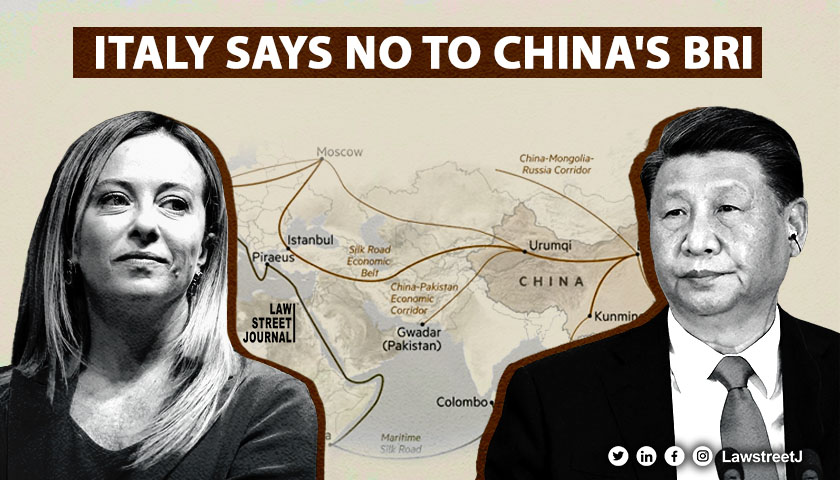Italy has withdrawn from China's vast Belt and Road infrastructure initiative, more than four years after becoming the only G7 nation to sign up, a government source said on December 6.
The membership has not produced the results we were hoping for, Italian Foreign Minister Antonio Tajani said.
Notably, before coming to power last year, Prime Minister Giorgia Meloni said the decision by a previous government to join in 2019 was a serious mistake.
Critics have denounced the trillion-dollar investment scheme as a predatory Trojan horse aimed at buying political influence.
Rome had pulled out, giving no details beyond saying it was done in such a way as to keep channels of political dialogue open, an Italian government source confirmed to AFP.
The deal was due to automatically renew in March 2024 unless Italy opts out by the end of this year.
What is Chinas Belt and Road Initiative (BRI)?
The BRI is an ambitious plan to develop two new trade routes connecting China with the rest of the world. But the initiative is about far more than infrastructure.
Beijing says upwards of 150 countries stretching from Uruguay to Sri Lanka have signed up to the initiative, a central pillar of President Xi Jinping's bid to expand China's clout overseas.
In 2014 Xi Jinping outlined plans to additionally establish new sea trade infrastructure along the old Marco Polo route a maritime silk road connecting China, Southeast Asia, Africa, and Europe.
According to researchers, this would be a longer route avoiding the Malacca Strait, incorporating fuelling stations, ports, bridges, industry, and infrastructure through Southeast Asia and into the Indian Ocean.










